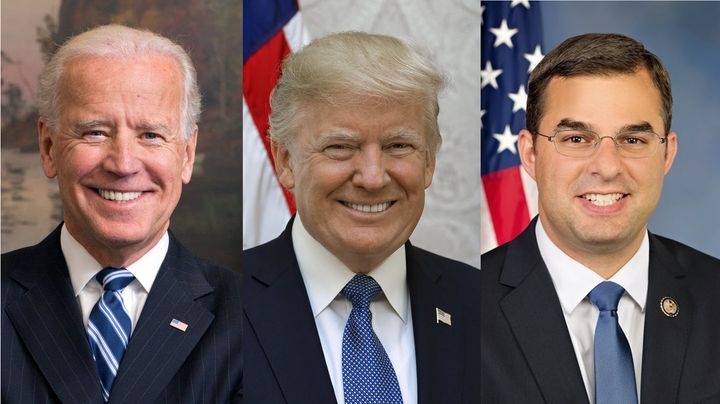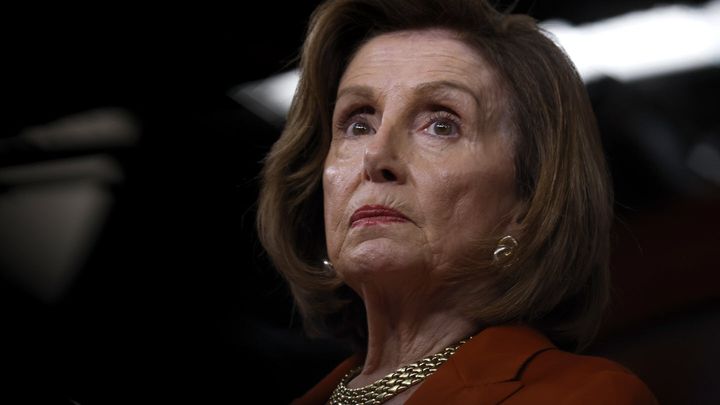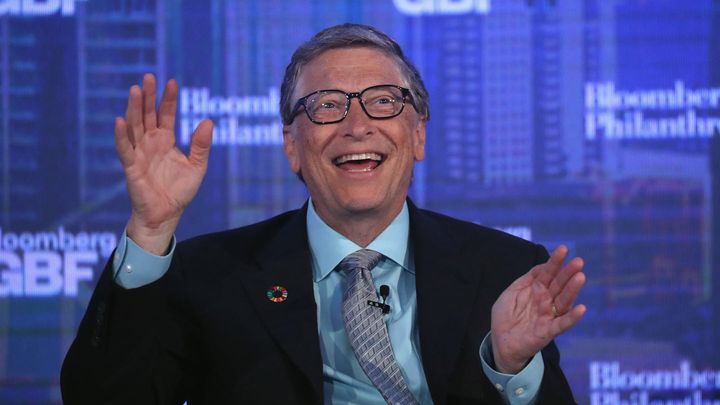As campaign finance laws are eroded and wealth is increasingly consolidated by a small group of individuals and corporations, more money than ever is being spent on U.S. elections. Political ad spending is expected to reach $6 billion in the 2019-20 election cycle, shattering the record amount ($4.2 billion) that was spent during the last presidential election cycle.
The next president could have a major impact on money in politics through ideological leadership as well as through concrete actions like judicial nominations and executive orders. New laws could require dark money groups to disclose their funders and alternative systems for financing campaigns could be put in place in order to address concerns about the influence of big donors. On the other hand, some of the major remaining campaign finance regulations could be eliminated, giving moneyed interests even more power over the American political process.
While the candidates with the strongest campaign finance reform positions have dropped out of the race, there is still a wide distance between presumptive Democratic candidate Joe Biden and his chief opponents, Republican President Trump and likely Libertarian candidate Justin Amash, on many money-in-politics issues.
Here’s a rundown of where the candidates stand on prominent campaign finance issues that could shape U.S. election rules for decades. When possible, the candidates’ actions on these matters were considered in addition to their statements.
Editor’s note: If you are affiliated with the campaigns and have information to add to this article, please get in touch: [email protected]
Ending Dark Money in Elections
Amash – Not much is known about Rep. Justin Amash’s (I-Mich.) position on dark money or any campaign finance matters (Amash did not respond to Sludge’s questions), but he is unlikely to support forcing all groups that spend money on elections to disclose their donors. Amash has never signed on as a co-sponsor to the DISCLOSE Act, which is a Democratic bill that was originally introduced after the Supreme Court’s Citizens United v FEC ruling in 2010 that would require all groups spending money on elections to disclose the sources of all contributions over $10,000 that they have received.
Biden – Presumptive Democratic candidate Joe Biden supports ending dark money in elections, according to his campaign website. “Biden will enact legislation to bar 501(c)(4)s from spending in elections–the same bar that applies to Section 501(c)(3) charitable groups,” the website states. “He’ll also lead reform of the Federal Election Campaign Act, to ensure that any entity of any kind that spends more than $10,000 on federal elections must register with the Commission on Federal Ethics and publicly disclose its donors.” This position puts Biden in line with provisions of the For The People Act, passed by the U.S. House’s new Democratic majority in March 2019, which would increase transparency rules around organizations spending on elections.
Trump – President Trump does not support eliminating dark money. His administration has taken steps to reduce the minimal donor reporting requirements for nonprofits that exist. In 2018, The Treasury Department announced that it would stop requiring many nonprofits, including 501(c)(4) and 501(c)(6) groups that are allowed to spend money on politics without publicly disclosing their donors, to include the identities of their donors on forms they file confidentially with the Internal Revenue Service. Dark money groups like 45 Committee and American Action Network have spent millions to support Trump, and many super PACs that support candidates—both Republicans and Democrats—accept funding from dark money groups.
Rejecting Super PAC Support
Amash – Amash recently told constituents in Michigan that he believes attempts to limit political spending amount to violations of constitutionally-protected free speech. Holding such a belief, Amash is unlikely to denounce spending on his behalf by super PACs, which are legally independent entities. Amash has benefited from super PAC expenditures in his congressional elections. In 2018, super PACs affiliated with Tea Party Patriots, Club for Growth and other groups spent $115,000 supporting his reelection.
Biden – The Biden campaign recently praised the super PAC Priorities USA, sending a message to donors that they should give to that group rather than other super PACs that have been set up to support Biden’s candidacy. Throughout the primary, Biden’s candidacy was boosted by millions in spending from a different super PAC, Unite the Country, which is funded primarily by billionaire hedge fund and business executives. Unite the Country’s top staffers include corporate lobbyists, investment bankers, and advisers to dark money groups.
Trump – Despite his tweets, President Trump has fully embraced super PACs that support his candidacy, including America First Action, which is run by Trump’s close allies including former White House press secretary Sean Spicer and Linda McMahon, who was Trump’s pick to run the Small Business Administration. In January, a 90-minute recording was released in which Trump provided non-public information about policy issues to super PAC donors at a private dinner in 2018.
Rejecting Corporate PAC Contributions
Amash – Amash does not reject corporate PAC donations. Over his career in Congress, his top corporate PAC donor during his years in Congress has been the one affiliated with Koch Industries ($35,000), the giant oil, chemical, paper, and electronics conglomerate owned and led libertarian megadonor Charles Koch. Other corporate PACs that have donated to Amash include those affiliated with WalMart, Pfizer, McDonald’s, and ExxonMobil.
Biden – Joe Biden is not accepting donations from corporate PACs for his presidential campaign.
Trump – President Trump’s reelection campaign committee has taken dozens of contributions from corporate PACs. His corporate PA donors include those affiliated with CVS Health, Lendingtree, Continental Resources, Advance America Cash, Consol Energy, and more.
Rejecting Lobbyist Contributions
Amash – Amash doesn’t reject contributions from lobbyists. As a member of Congress, Amash has received hundreds of contributions from lobbyists, according to a review of semi-annual reports required under the Lobbying Disclosures Act. Some of his lobbyist donors include Biotechnology Innovation Organization lobbyist Hayley Alexander, Novo Nordisk lobbyist Lauren Elizabeth Semeniuk, and Quicken Loans lobbyist Shawn Krause.
Biden – Biden has pledged to not take campaign contributions from lobbyists, but multiple lobbyists have bundled at least $25,000 in contributions for his campaign, according to a Sludge review of the campaign’s list of “volunteer fundraisers.” Biden’s lobbyist bundlers include Bob Brady, who lobbies for Comcast, and Brad Karp, a lobbyist for disgraced Nissan CEO Carlos Ghosn. Many other Biden bundlers are “shadow lobbyists,” meaning that their jobs are to influence government officials on behalf of their employers but they do not register as lobbyists and submit disclosure reports.
Trump – Many lobbyists have donated to President Trump’s reelection, including Ballard Partners President Brin Ballard, who currently has 90 lobbying clients including Boeing, GEO Group, and Uber; Clark Hill lobbyist Robert Babcock, whose clients include a disaster response services company, an oil and gas company, and an office furniture company; and Federal Advocates lobbyist Michael Esposito, whose clients include Huawei and Louis Dreyfus Group.
Expanding Public Financing of Elections
Amash – The libertarian Amash has not publicly stated his position on programs that provide public funding for candidates, which typically involve gathering more small qualifying donations rather than focusing on maximum contributions, but he is unlikely to be supportive. Amash has never cosponsored the Fair Elections Now Act, a public campaign financing bill that is supported by many Democrats, as well as by a handful of Republicans. In the previous session of Congress, a House bill that is similar to the Fair Elections Now Act—the Government By The People Act—had 163 cosponsors (162 Democrats, and one Republican), while the Senate version had 30 cosponsors, all Democrats.
Biden – According to his campaign website, “Biden strongly believes that we could improve our politics overnight if we flushed big money from the system and had public financing of our elections.” The website adds: “Biden has advocated for public financing of federal campaigns since the very beginning of his Senate career. He first co-sponsored legislation to create a public financing system for House and Senate candidates in 1973.”
Trump – President Trump does not support publicly funded elections. In his office’s policy statement on House Democrats’ H.R. 1 bill, one of the reasons given for his threat to veto the bill is because it “would establish costly and unnecessary programs to finance political campaigns, and force American taxpayers to finance Federal candidates they may not support.”
Overturn the Citizens United Ruling
Amash – The Citizens United PAC endorsed candidate is not likely to support overturning the Supreme Court’s Citizens United ruling because he has stated that he believes campaign finance laws restrict free speech. The 5-4 decision built upon previous Supreme Court rulings that ascribed free speech protections to uses of money to say that restricting money in politics was a First Amendment violation.
Biden – “The Supreme Court’s decision in Citizens United is wrong and should be overturned by a constitutional amendment,” Biden’s website says.
Trump – In a tweet, Trump celebrated a 2014 Citizens United ruling that allowed the organization to keep its donors secret, calling it a “important court win for the First Amendment.” Citizens United’s argument in the 2014 case was essentially the same as their argument in the 2010 Supreme Court ruling. Citizens United chairman David Bossie was deputy campaign manager for Trump in 2016 and is an honorary state co-chair in Maryland for Trump’s 2020 reelection campaign.
Read more from Sludge:
Corporate Lobbyists Control the Rules at the DNC
Slammed by Trump, Vote-by-Mail Gathers Momentum In States During Pandemic
Biden Sides With Big Pharma Against Plan That Could Make Coronavirus Vaccine Affordable



